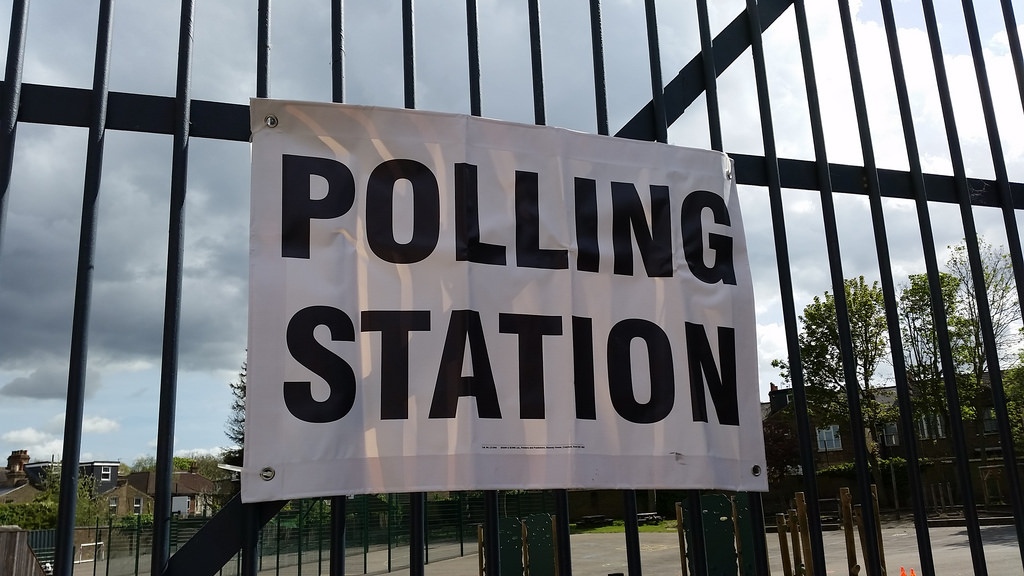Cranfield experts take on EU Referendum
23/06/2016

Last night experts from Cranfield School of Management argued the case for ‘Leave’ and ‘Remain’ in a passionate debate ahead of the UK’s EU Referendum.
Taking questions from an audience at Cranfield University and from viewers around the world via a live web feed and Twitter, Dr Catarina Figueira, Associate Professor of Economics, and Paul Baines, Professor of Political Marketing argued for the UK to remain in the EU. Emeritus Professor of Finance and Accounting, David Myddelton, made the case for ‘Leave’, with Dr Ruth Bender, Associate Professor of Corporate Financial Strategy, chairing the panel.
The day before the UK went to the polls, at the start of the debate the audience were asked to vote on whether they had made up their minds, were undecided or were not going to vote. The audience were later polled on the same question at the end of the event, which saw a swing of eight percent from ‘undecided’ to ‘decided’.
The Question Time-style event spanned questions on trade, immigration, economics and culture. Professor Baines spoke about the ‘negative campaigning’ from politicians on both sides of the debate.
The debate is available to view in full here: https://www.facebook.com/cranfielduni/videos/10154226875549882/
Summing up, on the ‘Leave’ side, Professor Myddelton said: “Of course we’re happy to trade with people on the continent, as we’ve done for hundreds of years and as we’ll continue to do once we’ve left the EU. We just don’t want to be ruled by them. As long as we remain in the EU, Britain’s liable to be outvoted by the Eurozone majority and the European courts of justice can overrule our own Supreme Court.
“For all the faults of our politicians, we, the people, can throw them out. That’s democracy, an essential protection for our political freedom.”
On ‘Remain’, Dr Figueira concluded: “We benefit tremendously from interaction with people within the EU and outside the EU and we should build the links that we have with the EU. We have a good basis for growth, for developing together. So why are we turning out backs on that and saying we are taking control? Taking control of what?”
She went on to highlight the importance of the EU in higher education, from attracting students to EU research funding for academics.
Categories & Tags:
Leave a comment on this post:
You might also like…
Introducing… Bloomberg Trade Flows
Are you interested in world trade flows? Would it be useful to know which nations are your country's major trading partners? If so, the Bloomberg terminal has a rather nifty function where you can view ...
Cranfield alumni voyage to the International Space Station
Seeing our alumni reach the International Space Station (ISS) has a ripple effect that extends far beyond the space sector. For school students questioning whether science is “for them”, for undergraduates weighing their next ...
From classroom to cockpit: What’s next after Cranfield
The Air Transport Management MSc isn’t just about learning theory — it’s about preparing for a career in the aviation industry. Adit shares his dream job, insights from classmates, and advice for prospective students. ...
Setting up a shared group folder in a reference manager
Many of our students are now busy working on their group projects. One easy way to share references amongst a group is to set up group folders in a reference manager like Mendeley or Zotero. ...
Company codes – CUSIP, SEDOL, ISIN…. What do they mean and how can you use them in our Library resources?
As you use our many finance resources, you will probably notice unique company identifiers which may be codes or symbols. It is worth spending some time getting to know what these are and which resources ...
Supporting careers in defence through specialist education
As a materials engineer by background, I have always been drawn to fields where technical expertise directly shapes real‑world outcomes. Few sectors exemplify this better than defence. Engineering careers in defence sit at the ...






